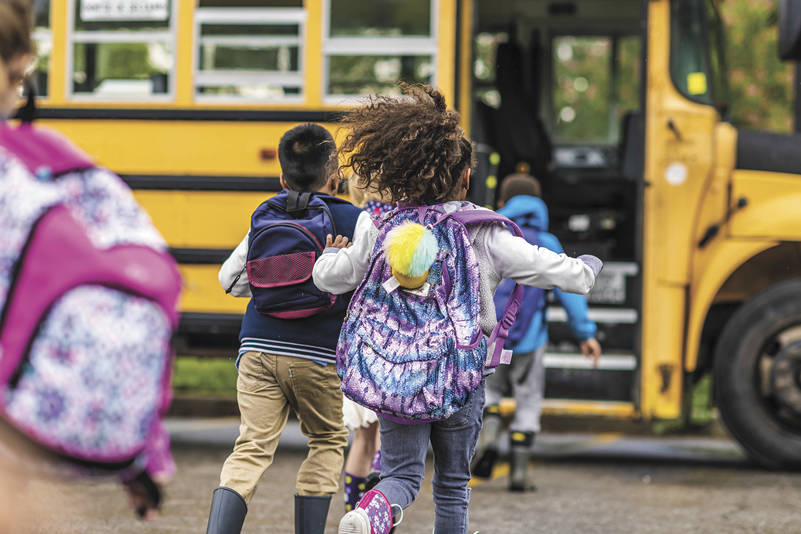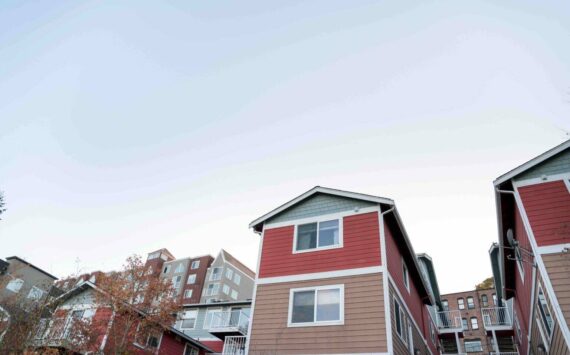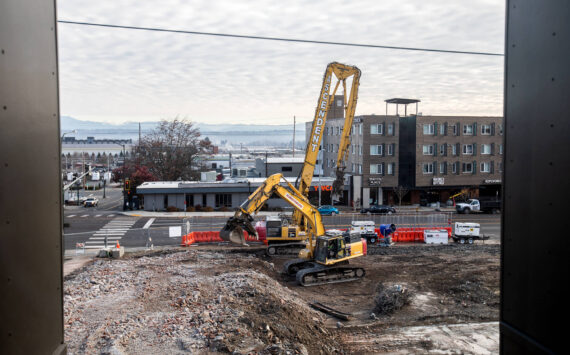By Morf Morford
Tacoma Daily Index
It’s a common diagnosis in headlines and everyday conversations to describe what ails our body politic as the situation that everything is political. Everything from what we eat for breakfast to the TV we watch to the vehicle we drive fits into a conservative or liberal formula.
For more reasons than any of us could consider, this is not a positive or healthy sign.
It would be difficult to come up with a more shallow, paralyzing and irrelevant litmus test.
What if, instead of filtering everything through a political lens, we looked at everything based on ethics, effectiveness or how it impacted future generations? Or even on a purely financial basis?
What if we looked at everything from health care, education and street maintenance as if it were an investment that did or did not increase in value?
I would argue that politics adds nothing to a conversation. In fact, as you may have noticed, virtually any time something comes up with a political tint, from clothes to preferred pets, the conversation either stops or each side retreats to their well-worn theories and talking points.
But what if our focus was ethics? Or even economics?
When budget crunches come, as they inevitably will, which is the preferred, (and with the minimum long term negative impacts) target; schools, libraries, police, fire protection or street maintenance (to name a few)?
In other words, which budget cuts will we recover from quickly and which will set us back semi-permanently?
Which cuts will cripple our ability to recover and which investments, even under a tight budget, will stabilize our community or even give us an advantage?
In individual households as well as cities and nations, our spending reflects our true values.
And somehow, I would submit, our values got a bit skewed lately.
For example, in recent months there was a lot of hysteria around “defunding the police.”
Oddly enough, there was little notice or passion about “defunding” schools or libraries – which has been going on for years.
And even little notice or concern about cutting back (by 20%!) our local fire departments. https://www.thenewstribune.com/news/local/article247146016.html
It would be difficult to find a better community investment than schools, but we all know they have been underfunded for years, if not decades, and are the first to be cut when yet another budget cut is called for.
Know any teachers?
I’m married to a retired teacher.
Every late summer, a few weeks before school began, we would go shopping for school supplies.
My wife, like almost every teacher, held fund-raising events through the previous year to buy essential supplies. We never had enough money raised so we, again like most teachers, would spend our own money on school supplies.
If a neighborhood, if not state or nation, is defined by its public education, and we know it is, how is this state of affairs acceptable?
If education of each generation is essential, as I certainly hope we all agree it is, how is cutting school budgets a fiscally or morally desirable act?
Or how about street maintenance?
As the winter usually ends, pothole season begins. As you probably know from experience, potholes can flatten tires or cause axle damage. They can ruin your day, make you late, bend your suspension or even cause fatal accidents.
NOT fixing them is far more expensive than any road repair.
The same with schools. If our schools are second-rate (or perceived as second-rate) this impacts the desirability of neighborhoods, the future of those children, job security of teachers (since teachers are likely to leave a struggling district for a more stable one) and almost certainly many other long-term, difficult-to-shake-off factors.
Tacoma’s reputation as a district acting as a “drop-out factory” took years to recover from.
Better schools also lead to lower crime rates, higher incomes and therefore a higher tax base. And those districts that do not cut their budgets usually have a jump-start over those districts that did cut.
Cutting school budgets seems like the worst possible move in an economic downturn, yet they are often the first to be cut.
It’s easy to see why – just as the squeaky wheel gets the grease, the group that complains the most (and loudest) keeps their funding while the group (like libraries and schools) that have limited presence (and political clout) take yet another hit on their budget.
Looking at any issue, its costs, its impact and its current situation, through the appropriate lens can give us insight, and maybe even the courage to spend money where it can do the most good – and not just for some of us.
If you have an older home, as I do, you learn very quickly that deferred maintenance can cost vastly more than preventive maintenance.
We may not want to do it, and we may not even be able to “afford” to do it, but we have learned, through painful experience, that taking care of a problem early, maybe even before it is a problem, can save us headaches and dollars later.
I think of that when I see homeless people.
Virtually every one of them used to be housed, and employed. They used to be contributors to the economy, not drains on it.
Because of a series of disastrous events from domestic violence to work-related injury, or almost anything else, they end up (at least for now) adrift on our streets.
For whatever reason, they have nowhere else to go.
And each day out there they get dirtier, sicker and more desperate. And the longer they are out there, the more they cost every one of us. From law enforcement to real estate values, each homeless person, as long as they are homeless, is a drag on our economy.
Getting them housed makes them – and us – far safer.
The earlier we can intervene, the better; and it’s better for them and better for us, our neighborhoods and our budgets.
The garbage, waste and crime are to no one’s advantage – now or in the future.
I know people who moralize about such people and say that they get what they deserve. And maybe some do.
But most, especially children, do not.
Oddly enough, the moralizing stops when disaster hits.
And when disaster hits, it’s too late.
There’s an old saying that the best time to plant a tree is twenty years ago. The second-best time is today.
The same with addressing homelessness, corroding streets, or neglected schools.
The best time to deal with them would have been twenty years ago – the second-best time is now.





